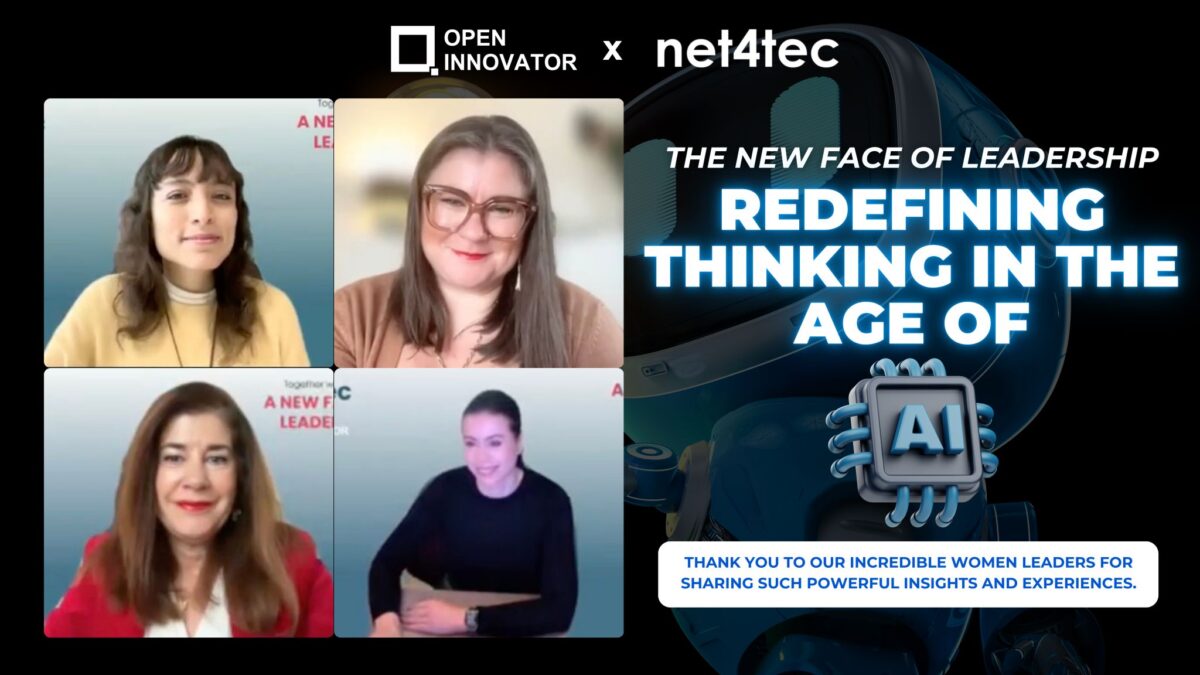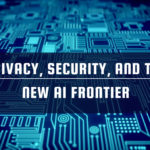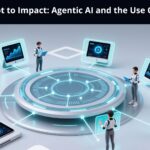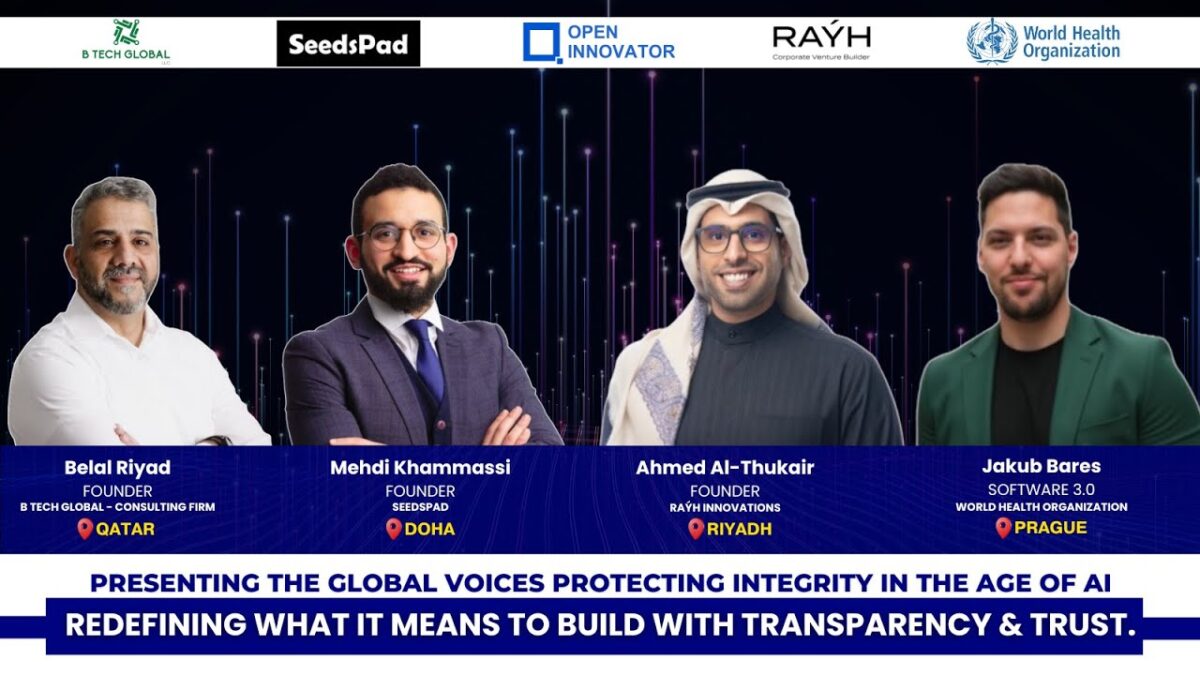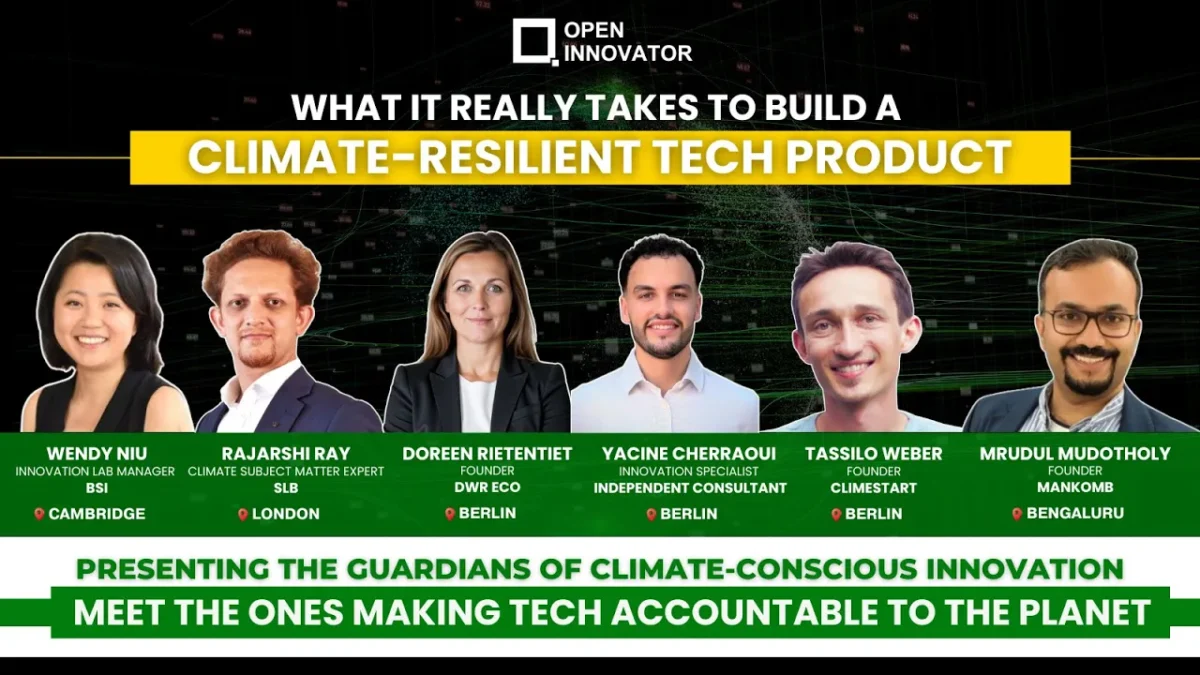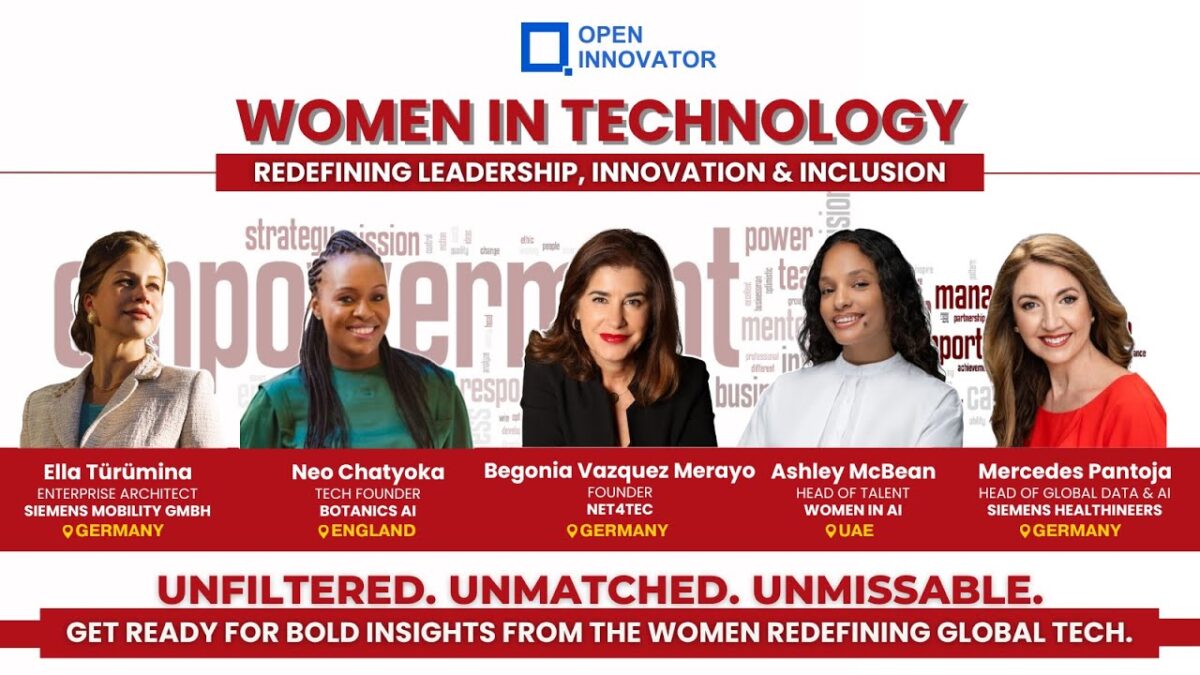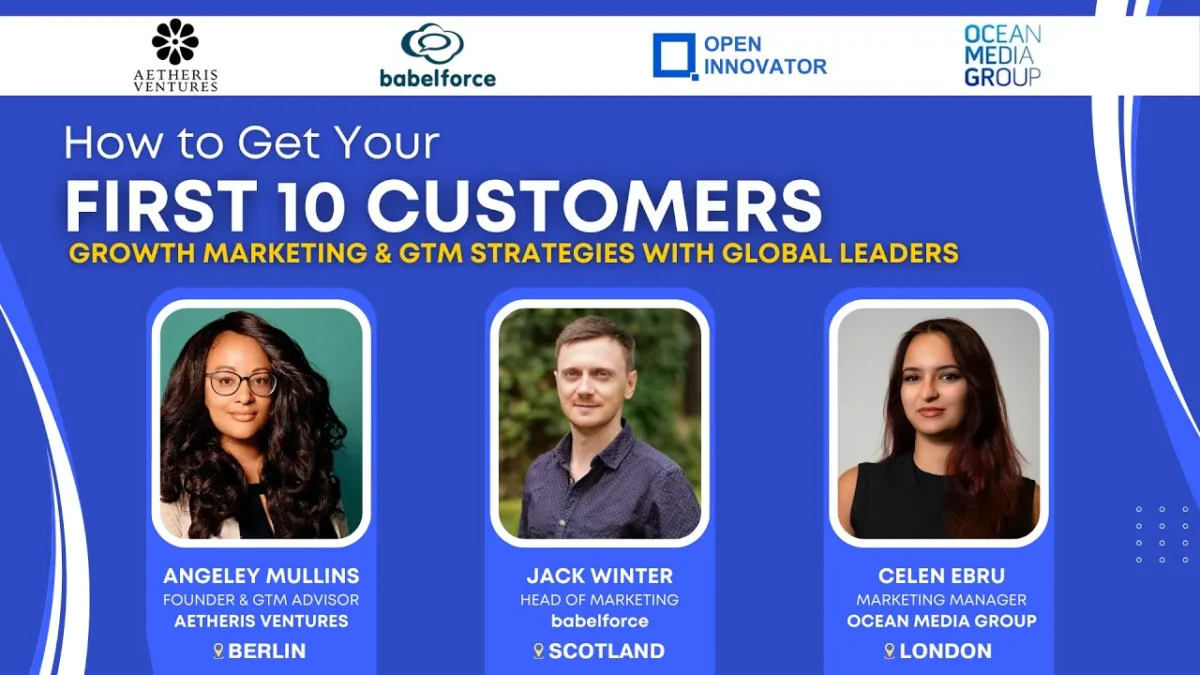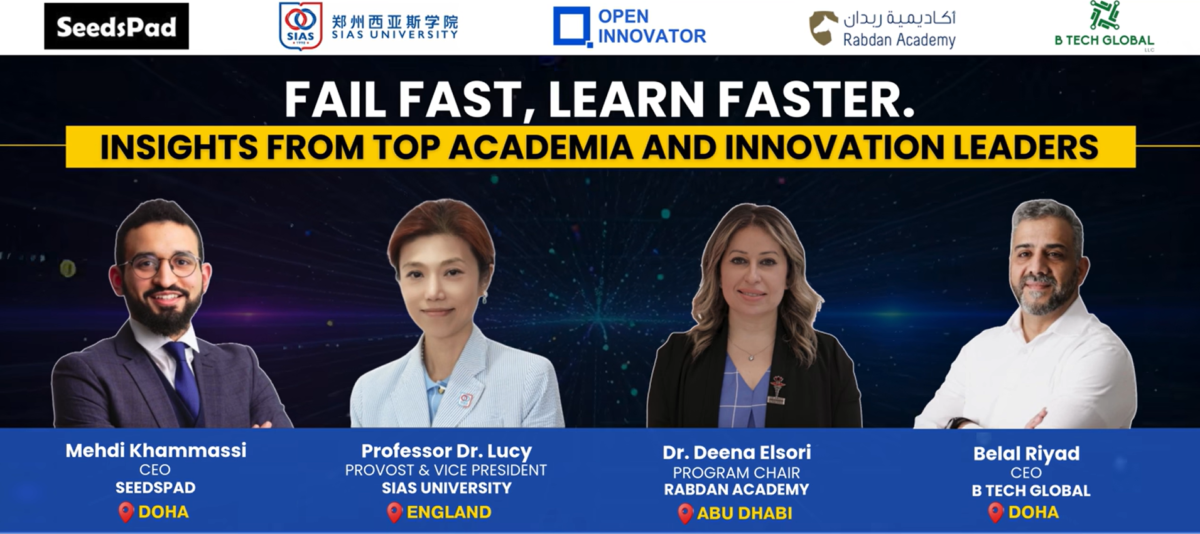Open Innovator organized a groundbreaking knowledge session on “The New Face of Leadership: Redefining Thinking in the Age of AI” on December 11, 2025, bringing together three distinguished women leaders from across the globe to address a critical challenge facing organizations today.
As AI rapidly reshapes how teams think, how organizations move, and how leaders must lead, the session explored an uncomfortable truth: the leadership mindsets that drove success in the past decade cannot sustain us through the coming years.
Hosted in collaboration with Net4Tech-a global ecosystem advancing women’s careers in technology- the 60-minute panel discussion moved beyond tools and algorithms to examine the deeper evolution of leadership required when machines think alongside humans, touching on essential themes of empathy, ethics, psychological safety, and the critical thinking skills leaders need to stay trusted, relevant, and effective in 2026 and beyond.
Expert Panel
The session featured four distinguished women leaders in technology and innovation as part of the Open Innovator Knowledge Sessions:
- Begonia Vazquez Merayo (Moderator) – Founder of Net4Tech, a global ecosystem advancing women’s careers in technology, and leadership coach advocating for equality in tech.
- Adriana Carmona Beltran – CEO and Founder of Tedix, global entrepreneur with experience building innovative tech startups across continents.
- Deborah Hüller – Partner at IBM Consulting, expert in analytics and AI since 2014, advising federal agencies on digital transformation and public sector modernization.
- Dr. Kamila Klug – Director of Business Development, Altair , Advisory Board Member.
Key Insights: Leadership Capabilities for the AI Era
The Curiosity Imperative
Adriana Carmona opened the discussion by identifying curiosity as the most underestimated leadership skill. “We cannot lead people in a future that we are afraid of,” she emphasized, advocating for a discovery mindset over fear when approaching AI. She positioned AI not as a replacement but as a tool to augment human capabilities, stressing that leaders must inspire curiosity in their teams to explore new possibilities.
Critical Thinking as a Compass
Dr. Kamila Klug highlighted the shift from traditional leadership to navigating changing terrain with values as a compass. She emphasized that in the AI era, critical thinking is essential for challenging assumptions and choosing the right path from multiple AI-generated options. Leaders must question not just AI outputs but their own biases to avoid creating echo chambers.
Psychological Safety in Fast-Changing Times
Deborah Hüller introduced psychological safety as a crucial leadership focus, noting that “AI accelerates change and change only works when people feel safe to learn.” She stressed that as teams face constant unlearning and relearning, creating environments where people can fail forward becomes essential rather than optional.
Cultural Philosophy and Human-Centric Innovation
Adriana shared insights from building companies across continents, emphasizing that leadership and innovation are inherently cultural. Her leadership philosophy combines emotional intelligence, empathy, and curiosity to understand diverse cultures and build meaningful connections. “AI is not here to replace us. AI is here to augment us,” she stated, positioning human relationship-building as the key differentiator in an AI-enhanced world.
Public Sector Transformation Challenges
Deborah addressed the complex challenge of transforming government institutions, which operate under zero-error tolerance and strict public fund management. She identified a critical tension: public servants are desperate to experiment with AI and fail forward, but the system doesn’t permit it. “We need to change the culture AND the system,” she emphasized, calling for systemic reforms that allow responsible experimentation while maintaining public trust.
Leading Through Continuous Transformation
Dr. Kamila Klug drew from her experience across countries and industries to advocate for coherent adaptability—maintaining core values while navigating constant change. She emphasized asking the right questions rather than simply asking many questions, and using AI as a “thinking sparring partner” that challenges rather than simply provides solutions.
Critical Warnings: AI Bias and Inclusion
The panel raised crucial concerns about AI perpetuating biases. Adriana provided a compelling example: most AI systems trained predominantly on English-language, US-based data could recommend California for agricultural projects while overlooking opportunities in Tanzania or Mozambique due to data scarcity. “If we are not aware of that, we are actually leaving behind a big part of society,” she warned.
Dr. Kamila Klug added a linguistic dimension, explaining how language itself shapes thought—a bridge described as masculine in one language is viewed as “strong,” while in languages where it’s feminine, it’s seen as “beautiful.” These biases embed themselves in AI training data.
Deborah emphasized the importance of inclusive automation design, noting that much AI will operate in the background without human oversight. “If we are not having inclusion in mind when building these systems, it will end in a non-inclusive world,” she cautioned.
Balancing Agility and Structure
Responding to audience questions about maintaining agility without chaos, the panel offered practical guidance. Adriana advocated for defining clear “North Stars”—specific goals that guide decision-making amid constant change. Deborah added that even agile environments need agreed-upon structures, with transparent communication when those structures evolve.
The Path Forward
The session concluded with a call to action from Begonia: “We are democratizing technology. We are opening doors for everyone to become a leader in AI.” She urged participants to avoid creating a new “AI gap” that would disproportionately affect women, encouraging everyone to be conscious creators who challenge biases and shape the future deliberately.
The consensus: AI presents unprecedented opportunities, but leaders must approach it with curiosity, critical thinking, psychological safety, and unwavering commitment to inclusion. As Adriana summarized, AI should be treated as a “junior collaborator” that requires training, guardrails, and guidance—not as a perfect oracle.
This Open Innovator Knowledge Session was part of “The New Face of Leadership” movement in collaboration with Net4Tech. Open Innovator specializes in digital transformation and innovation strategies, co-creating solutions where bold ideas turn into action. Write to us at open-innovator@quotients.com

